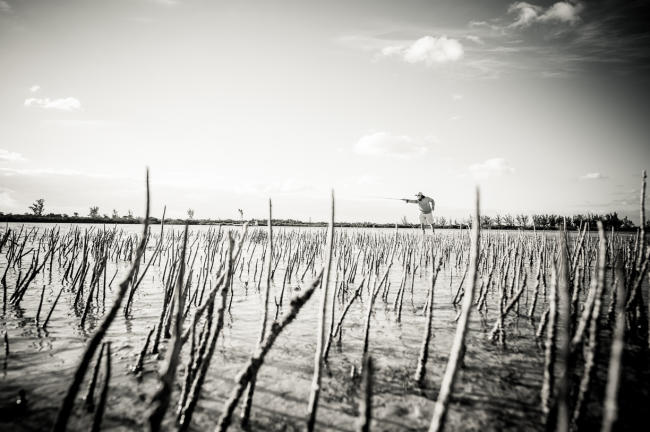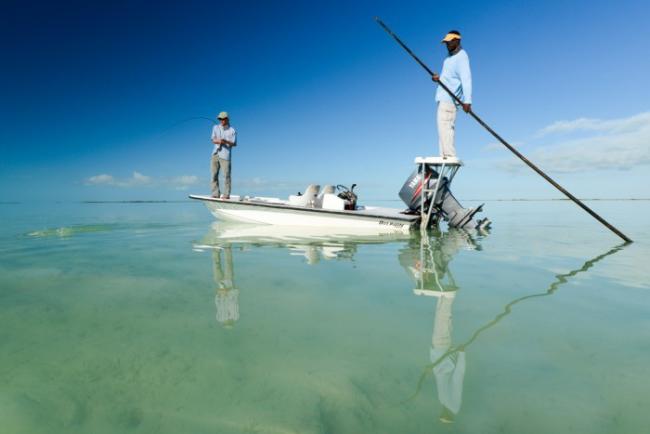The international fishing community was outraged by the June 17 release of proposed changes by the Bahamas Ministry of Agriculture, Marine Resources and Local Government. In them, fishing was only allowed with a native Bahamian guide and fishing lodges could only be operated by Bahamian citizens or permanent residents. This would effectively put an end to DIY fishing trips to the outer Bahamian islands and shutter many lodges currently run by foreigners.
Foreign fishermen would be required to obtain a permit to fish—which may be refused by Bahamian officials—and pay a fee. No boat could operate without a certified Bahamian fishing guide for every two fishermen. Lodge operators and guides must be citizens or permanent residents of the Bahamas.
The current Bahamian system does not require any license to fish—also a problem. No funding comes from foreign anglers who visit, so no conservation efforts are benefitted by their trips. The pendulum has swung hard the other way now, with license fees being implemented with no accountability of where the money is going.

Photo courtesy of Simms Fishing
Bonefish & Tarpon Trust’s Director of Operations Dr. Aaron Adams sent an open letter to the Bahamian Minister of Agriculture and Marine resources, the Hon. V. Alfred Gray, with comments on the proposed changes. The letter starts with an explanation of BTT’s mission statement and an analysis of the habitat threats bonefish face in the Bahamas. Of particular concern are the spawning and feeding grounds located in Bahamian waters.
Adams also expressed concern over the allocation of funding under the new regulation changes. Adams pointed out that sportsmen are generally willing to pay for licenses and other expenses if they know the funds will go toward bettering the game species.
Proposed restrictions on seine netting and hook and line fishing could also impact research efforts in the area, both of which are used by BTT under a permit to capture and tag bonefish.
Adams highlighted the potential loss of tourism dollars from foreign anglers—to the tune of $141 million according to a 2010 report. That number, estimated during the height of the recent recession, is less than if the study was conducted in 2015.
BTT is calling on anglers to voice their opinions via email to fisheries@bahamas.gov.bs. Just like terrestrial game species, conservation suffers when sportsmens’ dollars are lost. The loss of key bonefish research and conservation efforts in the Bahamas could have sweeping effects on the species’ future.
Subscribe to the free daily newsletter to receive Sporting Classics content directly to your inbox!
Cover image courtesy of Yellow Dog Flyfishing Adventures

